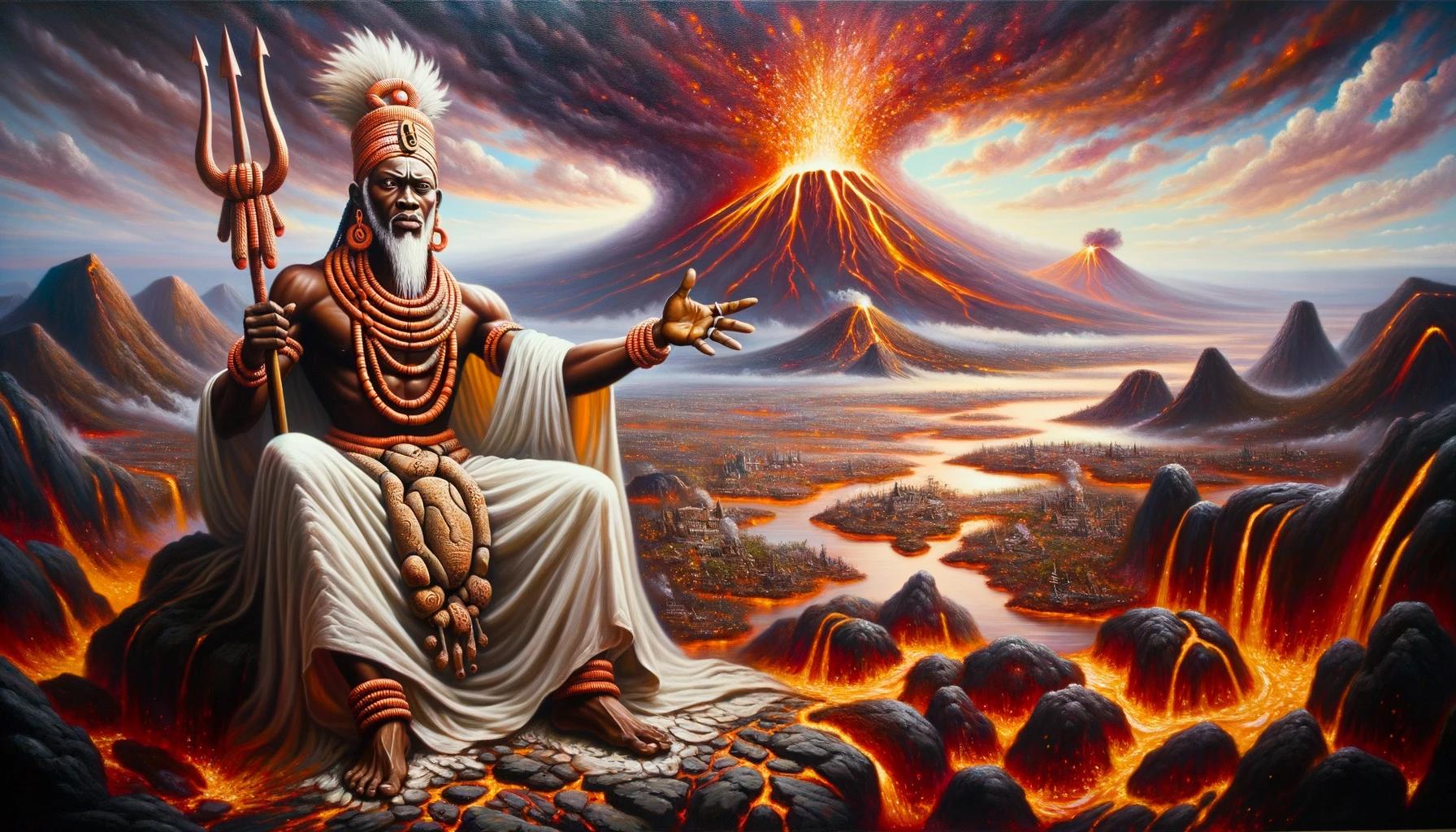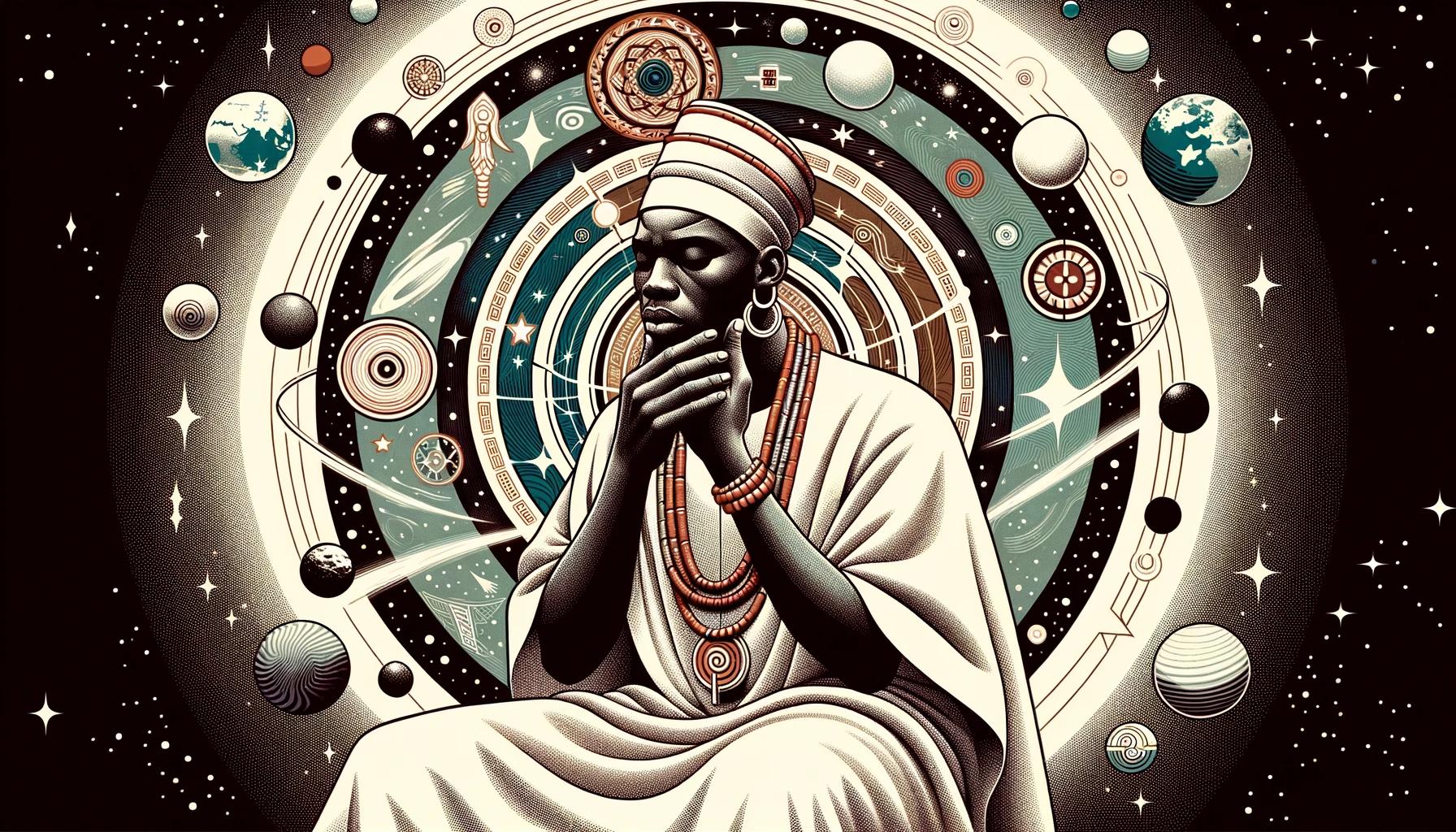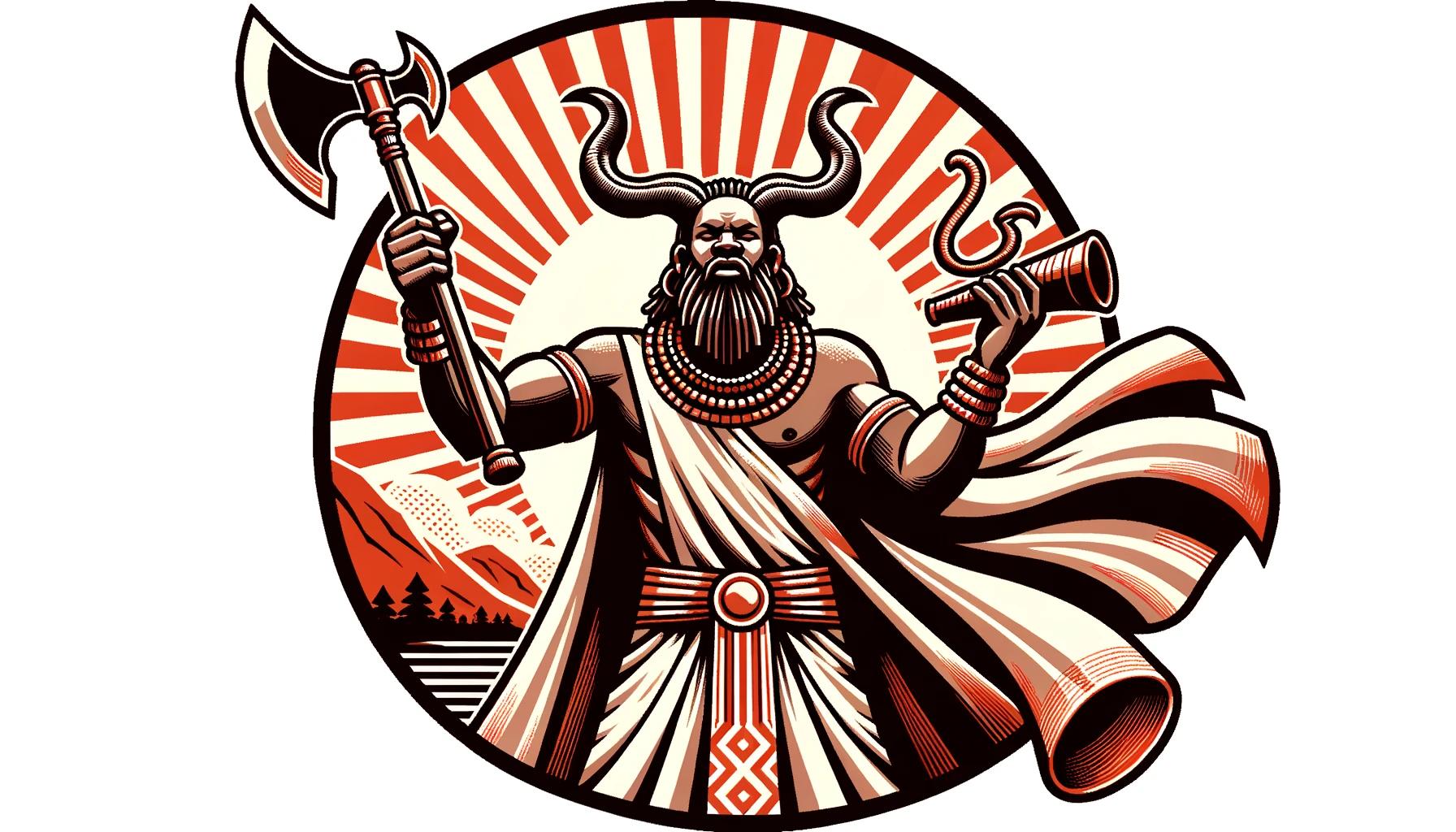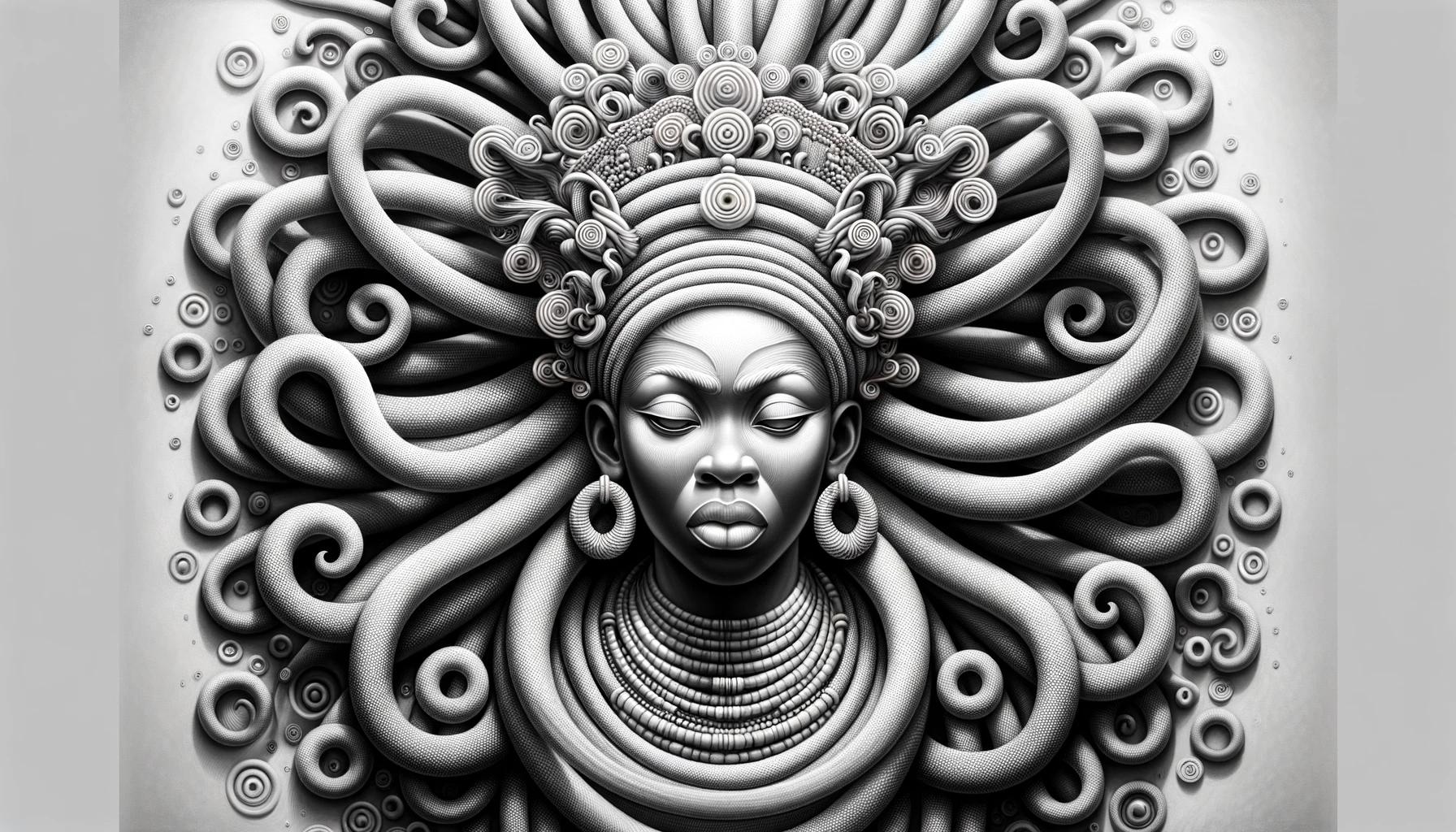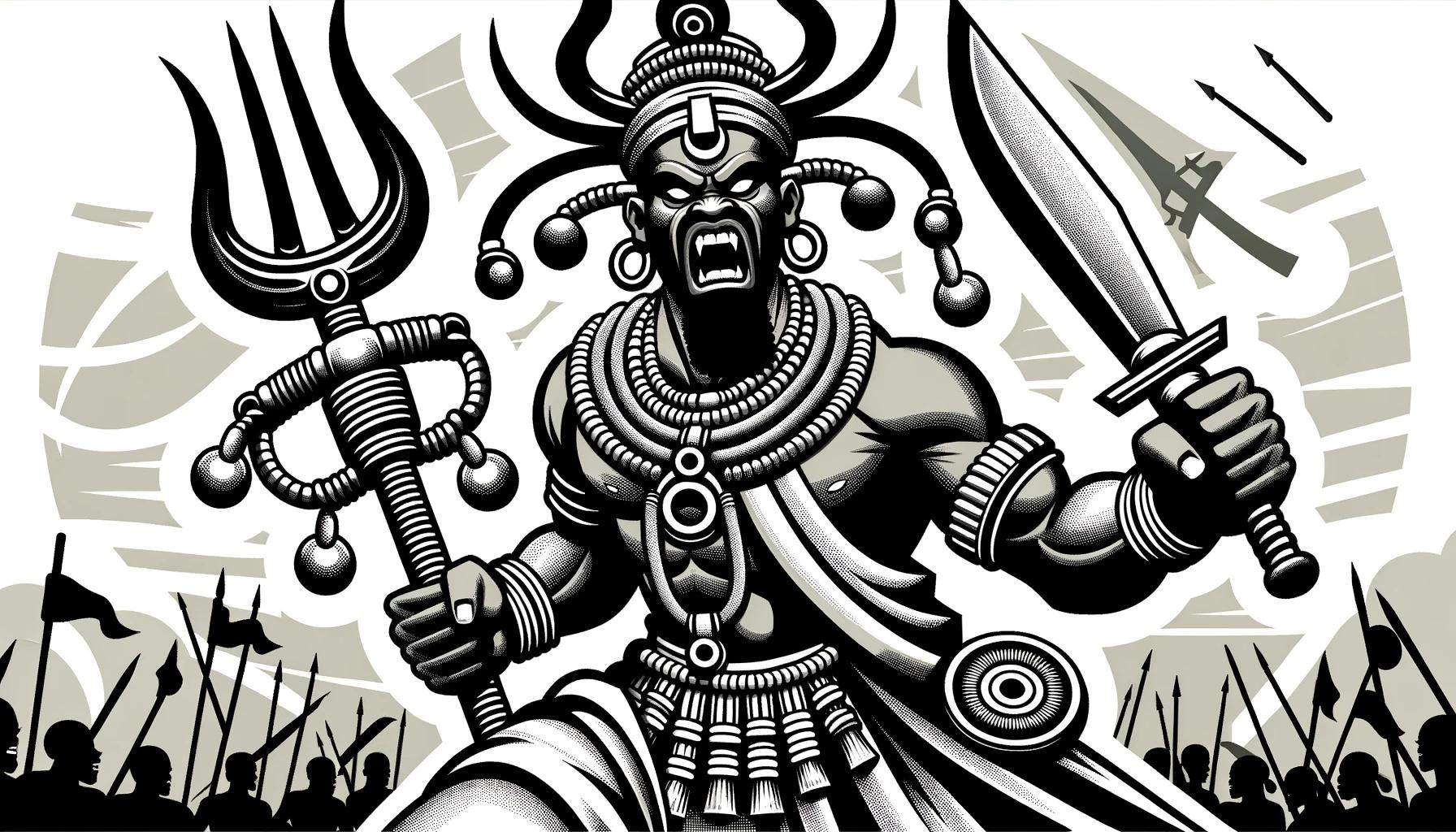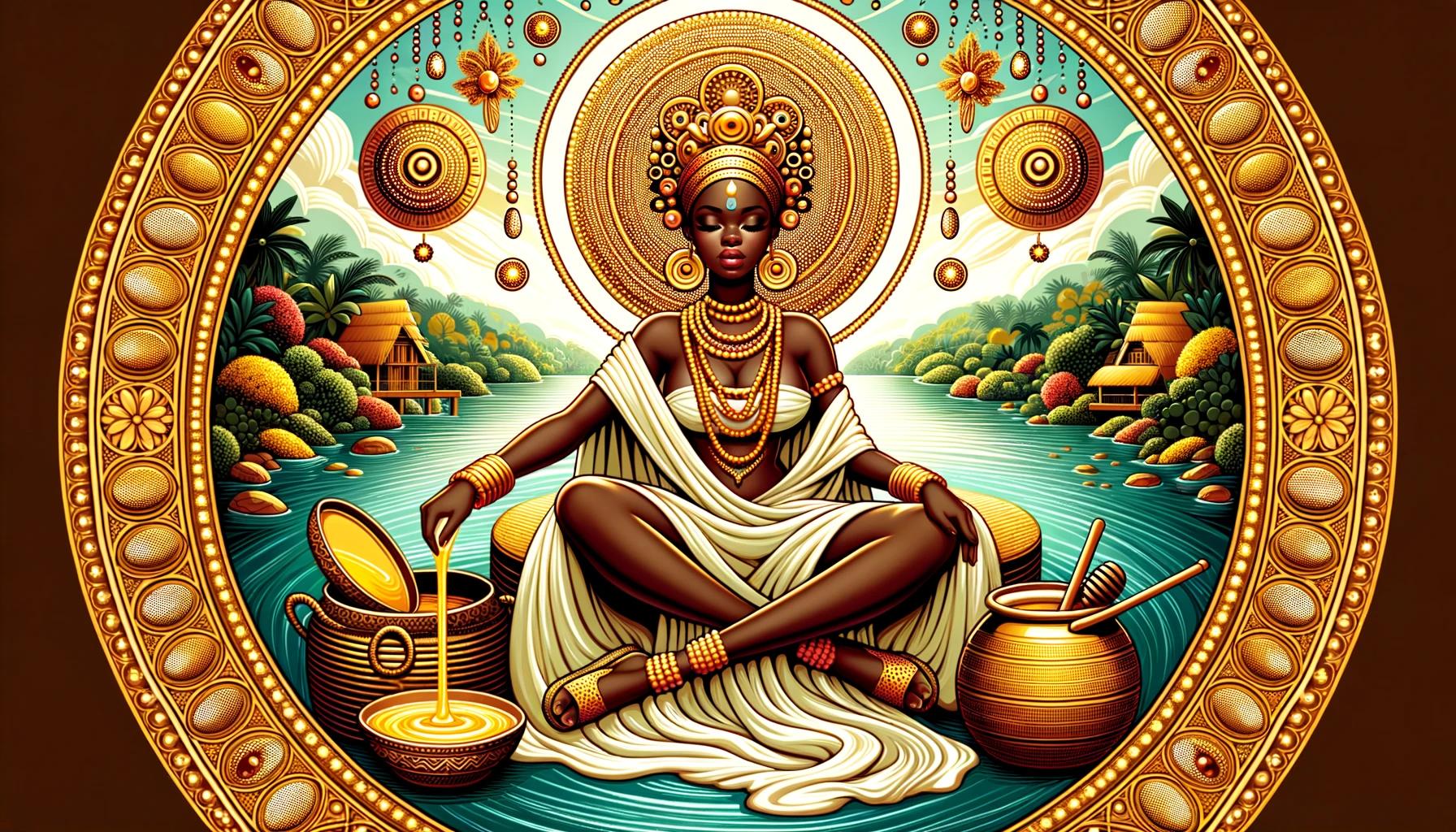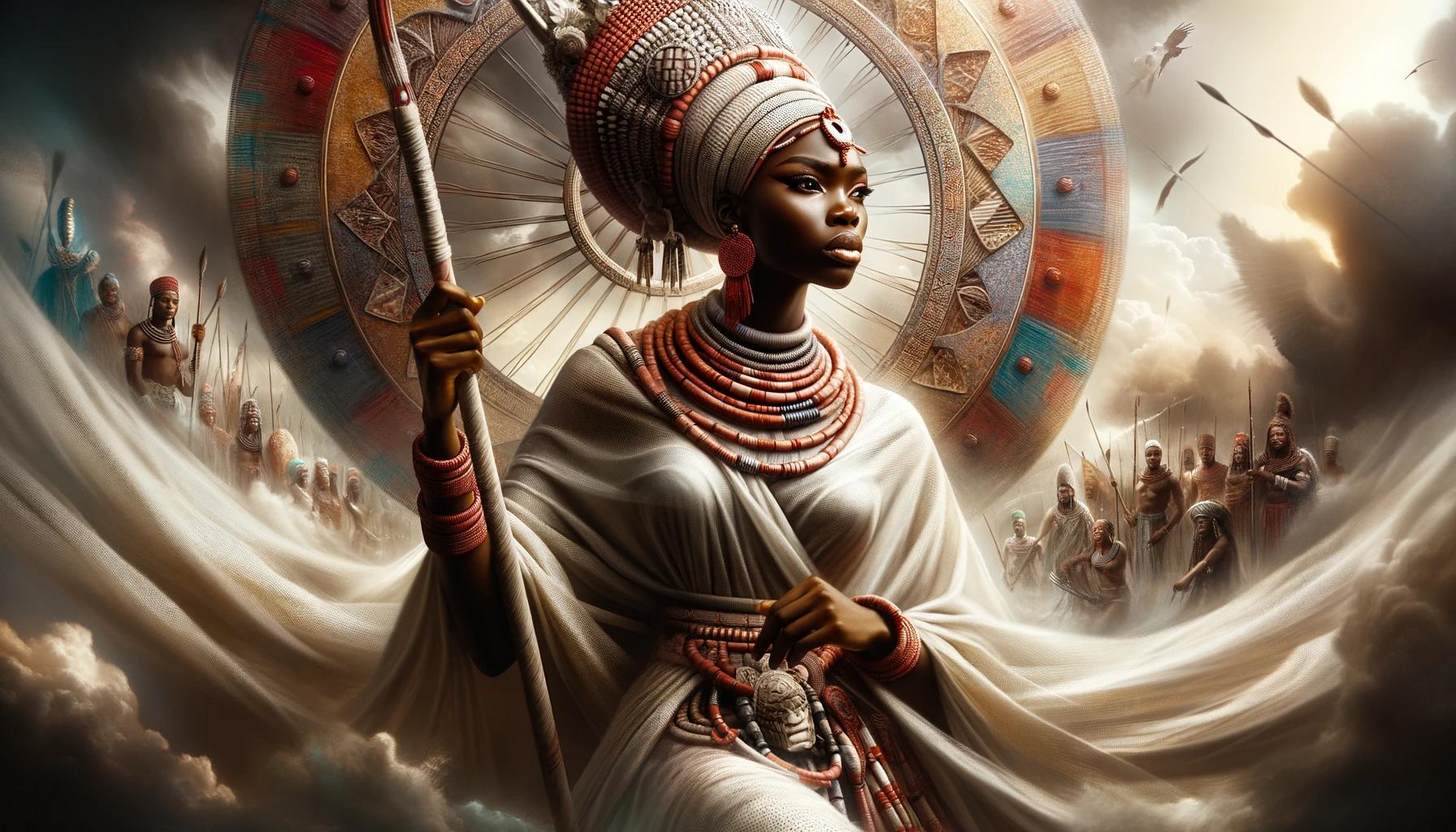Aganju African God: Discover the Powerful Deity Honored in Yoruba Religion

Aganju, the African god, holds great significance in Yoruba religion. With diverse associations across different traditions, Aganju is revered as a warrior king in Nigeria and Benin, a volcanic deity in Cuban Santería/Lucumí, and a manifestation of strength in Afro-Brazilian Candomblé.
Worshipped for protection and well-being, Aganju is closely associated with Shango, Oshun, and Yemoja, and is believed to aid in overcoming physical and psychological barriers. Join us as we explore Aganju’s rich cultural heritage, familial connections, and the power he holds in diverse communities.
Understanding the Significance of Aganju in Yoruba Religion
The Origins and History of Aganju
Aganju, a significant figure in Yoruba religion, holds a rich history that dates back to ancient times. His origins can be traced to Nigeria and Benin, where he is revered as a deified warrior king associated with the city of Shaki in the state of Oyo.
According to legends, Aganju walked with a sword and unleashed fire during battles, symbolizing his role as a protector and guardian of the city. Through this historical lens, we can delve deeper into Aganju’s significance in Yoruba culture.
The Role and Attributes of Aganju in Yoruba Culture
Aganju plays a multifaceted role in Yoruba culture, embodying various attributes and associations. As a deity, he epitomizes strength, power, and protection. Aganju is considered a member of the ancient royal family of Oyo, granting him an elevated status and a revered position.
Furthermore, he is believed to have control over volcanoes, symbolizing his influence over natural elements. Aganju is also recognized as a provider of fertility and agricultural prosperity, highlighting his connection to the land and its abundance.
- Aganju symbolizes strength, power, and protection in Yoruba culture.
- He is a member of the ancient royal family of Oyo, holding a revered position.
- Aganju has control over volcanoes, showcasing his dominion over natural elements.
- He is associated with fertility and agricultural prosperity, reflecting his connection to the land.
By comprehending the origins, history, and attributes of Aganju, we gain deep insights into his significance within Yoruba religion and culture.
This knowledge sets a strong foundation for understanding the broader aspects of his worship and role in different traditions.
Aganju’s Associations and Worship in Different Traditions
Aganju, the African god, is revered in various traditions and cultures, each with its distinct associations and practices. Let’s explore how Aganju is honored in different religious contexts:
Aganju in Yoruba Religion: The Warrior King of Shaki
In Yoruba religion, Aganju holds the title of a warrior king, revered for his bravery and strength.
He is closely associated with the city of Shaki in the Oyo state of Nigeria and Benin. As a protector of the city, Aganju is believed to safeguard its inhabitants and ensure their well-being.
With his legendary sword and fire-shooting abilities, he symbolizes power and defense.
Aganju in Cuban Santería/Lucumí: The Volcanic Deity
In Cuban Santería/Lucumí, Aganju is worshipped as a volcanic deity, despite the absence of volcanoes in Cuba or Yorubalandia. This association stems from the cultural adaptation within the Cuban religious practices.
Considered part of the deity family, which includes Shango, Oshun, and Oya, Aganju is believed to assist individuals in overcoming physical and psychological barriers. He is also associated with liberation from slavery and the ability to bear heavy burdens.
Aganju in Afro-Brazilian Candomblé: Manifestation of Shango
In Afro-Brazilian Candomblé, Aganju is worshipped as a manifestation or quality of the Orisha Shango, often referred to as Xango Aganjú. He is closely linked to explosiveness and lack of control, symbolizing strength and determination.
During rituals and ceremonies involving water, fire, and the wild nature, Aganju is invoked. His presence represents the untamed forces of nature and its overwhelming power.
Exploring the diverse traditions that venerate Aganju sheds light on the deity’s versatility and symbolism.
From the warrior king in Yoruba religion to the volcanic deity in Cuban Santería/Lucumí and the manifestation of Shango in Afro-Brazilian Candomblé, Aganju serves as a powerful symbol of strength, protection, and liberation across different cultural contexts.
Exploring Aganju’s Familial Connections and Symbolism
In the rich tapestry of Yoruba religion, Aganju maintains significant familial connections and embody symbolism that adds depth to his worship. Let’s delve into the interrelationships with other prominent deities and uncover the symbolism associated with fertility, prosperity, and natural elements.
Aganju’s Relationships with Shango, Oshun, and Yemoja
- Shango: Aganju is closely associated with Shango, considered either his father or brother. Together, they form a powerful alliance representing strength, fire, and determination. Their bond in the Yoruba pantheon exemplifies the complementary forces in nature.
- Oshun: Aganju’s connection with Oshun reveals a harmonious partnership, as they both play vital roles in fertility and abundance.
Oshun, the goddess of love and sweet waters, complements Aganju’s intense energy with her nurturing and compassionate qualities.
- Yemoja: Aganju is also linked to Yemoja, the mother goddess of the sea and protector of women.
This relationship exemplifies their shared attributes of protection, care, and abundance, emphasizing their involvement in ensuring the well-being of their devotees.
Aganju’s Role in Fertility, Prosperity, and Natural Elements
Aganju’s significance extends beyond his familial connections.
He is revered as a provider of fertility and agricultural prosperity, ensuring bountiful harvests and abundance for the community. His association with the wild and untamed elements of nature makes him a guardian of the land and its resources.
Furthermore, Aganju embodies the power of volcanoes, representing the fiery and transformative forces that shape the earth. Just as volcanic eruptions can both destroy and create, Aganju symbolizes the potential for growth and renewal that arises from the most challenging circumstances.
In honoring Aganju, devotees seek his assistance in matters of fertility, agricultural success, and harnessing the untamed power of nature. By understanding his familial connections and symbolic role, followers can deepen their appreciation for the diverse aspects of this revered African god.
The Power and Influence of Aganju: Overcoming Barriers and Liberation
Aganju, the African god, possesses tremendous power and influence in various religious traditions. He is believed to aid individuals in overcoming physical and psychological challenges, offering support during times of difficulty.
Aganju’s Ability to assist in Physical and Psychological Challenges
Aganju’s role extends beyond mere protection and encompasses the ability to help individuals conquer physical and psychological obstacles. Those who worship Aganju turn to him for strength and guidance when facing hardships and adversity.
His divine presence is believed to offer solace, empowerment, and the inner fortitude needed to overcome life’s struggles.
Whether it be battling physical ailments, overcoming emotional trauma, or facing personal limitations, Aganju is revered as a deity who can provide assistance in navigating these challenges.
Through prayers and rituals dedicated to him, devotees seek his support in healing their bodies, minds, and spirits.
Aganju’s Role in the Liberation from Slavery and Burdens
Aganju’s influence also extends to liberation from oppression, particularly in relation to slavery and burdens. Within Yoruba religious practices, Aganju is revered for his connection to the ancestral experiences of slavery.
Many believe that he carries the collective memory of those who endured the atrocities of the slave trade.
Devotees of Aganju call upon his power to break the chains of bondage and overcome the burdens that weigh them down.
It is believed that through his intercession, individuals can find the strength to free themselves from the shackles of physical, mental, and spiritual enslavement. Aganju’s guidance is seen as an agent of liberation, leading worshippers towards empowerment and freedom.
- What are Aganju’s connections to other deities?
- What powers and attributes are associated with Aganju?
Through his abilities to assist in physical and psychological challenges, as well as his role in liberation from slavery and burdens, Aganju continues to be revered as a powerful and influential deity in various African religious traditions.
Fan Feed: Frequently Asked Questions about Aganju African God
How is Aganju worshipped in Yoruba religion?
Aganju is worshipped in Yoruba religion through various rituals and ceremonies. Offerings such as food, drinks, and symbolic items are presented to honor and appease Aganju. Devotees participate in prayers, dance, and drumming to connect with the deity and seek guidance and protection.
Temples dedicated to Aganju serve as sacred spaces for worship, where the community gathers to celebrate and pay tribute to this mighty Orisha.
What is the significance of Aganju in Santería/Lucumí?
In Santería/Lucumí, Aganju holds great significance as a volcanic deity.
Although Cuba does not have volcanoes, Aganju is revered for his association with fire and his representation as a powerful force of nature. Followers of Santería/Lucumí honor Aganju to seek his assistance in overcoming physical and psychological barriers, as well as for liberation from oppression and burdens.
His presence symbolizes strength, resilience, and transformation within the religion.
How is Aganju honored in Afro-Brazilian Candomblé?
In Afro-Brazilian Candomblé, Aganju is honored as a manifestation or quality of the Orisha Shango, often referred to as Xango Aganjú. Aganju is invoked during rituals and ceremonies that involve elements such as water, fire, and the wild forces of nature.
The explosive and uncontrollable nature associated with Aganju symbolizes strength, determination, and the untamed aspects of life. Devotees pay homage to Aganju through dance, music, and offerings, celebrating his power and connection with natural forces.
What are Aganju’s connections to other deities?
Aganju shares close connections with Shango, either as his father or brother, in various religious traditions. Additionally, Aganju is associated with the deities Oshun and Yemoja, forming an interconnected family within the pantheon.
As a member of the ancient royal family of Oyo, Aganju is revered for his role in fertility and agricultural prosperity. He is considered the guardian of volcanoes and is believed to be the owner of all mineral riches and untamed lands.
What powers and attributes are associated with Aganju?
The worship of Aganju is linked to his association with wild nature, volcanoes, and rivers. He is seen as a symbol of strength, power, and protection. Aganju is believed to have the ability to help individuals overcome physical and psychological challenges.
His attributes include assisting with liberation from slavery, carrying heavy burdens, and breaking down barriers. Devotees look to Aganju for guidance and support in their journey towards personal growth, well-being, and prosperity.
.

